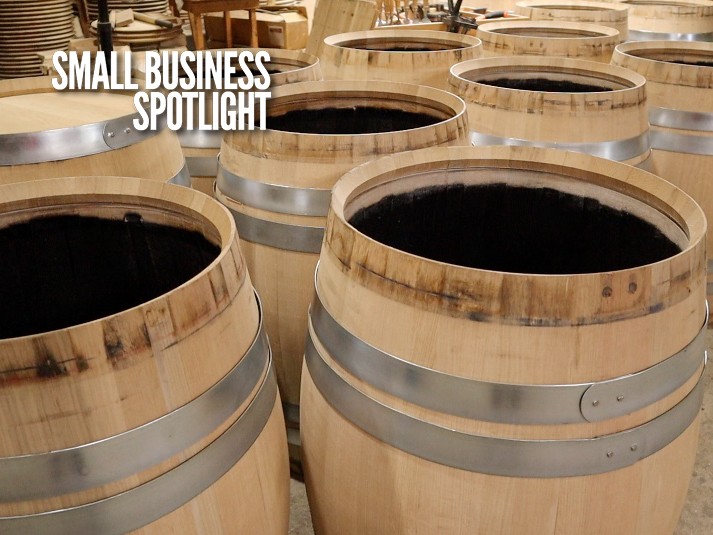It is pretty rare to find a business that specializes in a trade dating 5,000 years.
But that is just business as usual at Gainesville Cooperage, located in the old Georgia Chair factory.
"The craft hasn’t changed a whole lot, a few sizes and shapes may have a little bit, but the technique to get them there hasn’t," said Lee Arnold, president of Gainesville Cooperage. "It’s something I understand a lot of people don’t want to do now because it is a lot of hard work, it’s very laborious, but it is a satisfying craft. When you’re done at the end of the day, you can look at it and say, ‘I made that’.”
Gainesville Cooperage makes wine and whiskey barrels for distilleries and wineries, as well as individual buyers. Arnold and his coopers, including his son Tucker, craft the barrels from the wooden staves to the finished product.
A cooper is a term for someone who makes barrels.
"It’s a lot. You’ve got to select your wood…once it goes through all the machining processes, you want to start your defecting," said Arnold.
The wood used for barrels at Gainesville Cooperage is imported primarily from stave mills, although Arnold said Gainesville Cooperage can cut their own. Regardless, the wood is checked for defects, such as grain patterns that indicate it could lead and wormholes from pests, after it is left outside for several years to age.
An acceptable stave, which is essentially a long piece of wood, heads to a molder to get the proper shape. Then each stave is shaped together to form what Arnold calls a "blooming onion", where the staves are together at one end and fan out from each other at the top.
The barrel is then steamed until the wood is bendable, then put on a machine that bends the wood to the recognizable barrel shape. Then the barrel is put on a hoop press to set the iron hoops around the middle.
Then a barrel is placed on the fire to be toasted. If it is a wine barrel, it is toasted and then moves to the next step; a whiskey barrel has to sit on the fire until it is charred.
Once the barrel is done on the fire, it is taken to be sanded and crozed. Croze is the process of cutting the top inside of the barrel so the head will fit snuggly on top.
Finally, the head for the is placed on top, and the final iron hoops are pressed on the side.
Arnold said it takes about an hour and a half for one experienced cooper to complete a barrel. If multiple people are available to work at each stage, the process can move a little quicker.
"If you’re doing multitudes of barrels, you can process 20 to 30 a day moving forward with a lot going on at one time and multiple people at each stage moving forward," said Arnold.
Arnold said Gainesville Cooperage, which opened in 2018, is the only cooperage in Georgia. It is also one of only two in the southeast. There are less than 30 cooperages in the United States, and the majority of those are under large distilleries.
Out of the roughly dozen independent cooperages, Arnold said most of them are owned by a father and son. He said he is excited to do the same with his son.
"It means a lot in that respect, to teach a trade to the younger generation but especially to my son," said Arnold. "If you go to Europe, some of the cooperages over there you’ll see there’s six, seven, eight, [or] ten generations…I’d love that to happen here."
Arnold said Gainesville Cooperage will train more young coopers, so long as they have a willingness to learn the trade.
More about Gainesville Cooperage is on the website.

http://accesswdun.com/article/2022/3/1088673/small-business-spotlight-gainesville-cooperage
